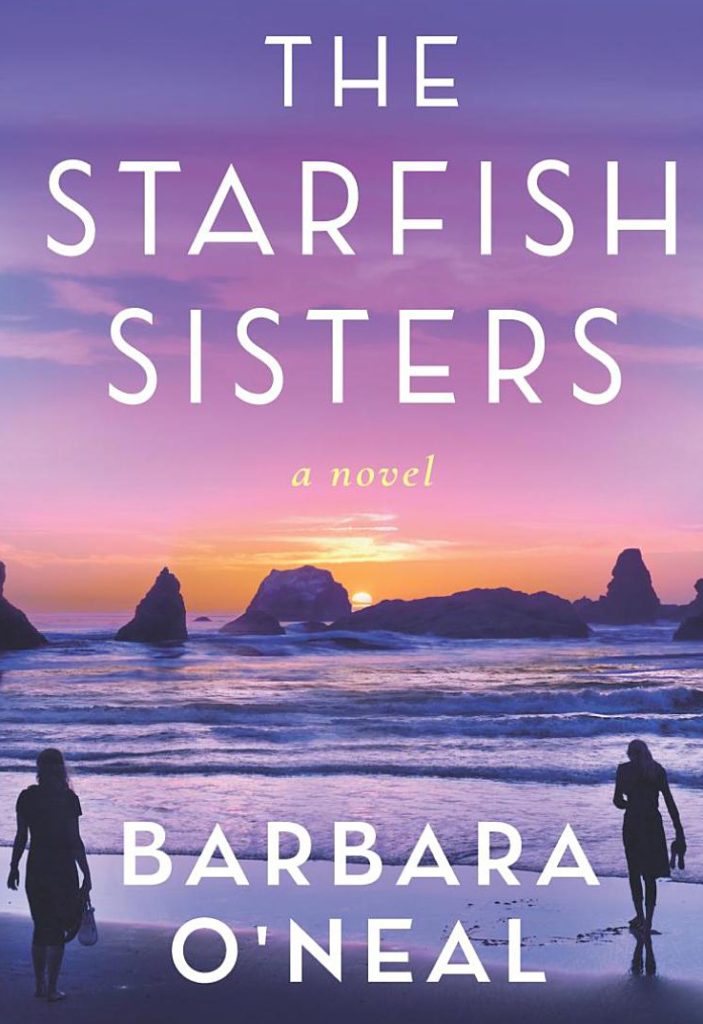When I interviewed Barbara O’Neal in February 2020, the Colorado native had recently published her first book of coastal fiction—and my fourth novel was not quite out. Since then, she’s published three more books that all take place on the coast… and I’m still working on the sequel to Ferry to Cooperation Island!
Her 2023 book, Starfish Sisters, just came out September 1 and has already received rave reviews. While it does adhere to her usual pattern (a strong female main character coming to terms with something that happened years earlier), this story is uniquely satisfying—thanks to the strength of O’Neal’s clear voice and detailed character development.
It opens with a short prologue, the timeline identified only as “Then,” which shows us “Joel” setting fire to a church after watching “Suze” and her father driving away. The next section, titled “six months ago;” is a newspaper clipping explaining that “Suze Ogden, Oscar and Emmy-award winning actress,” has been attacked by a hate group. Her prognosis is unclear. Only then does O’Neal launch us into “Chapter 1,” which is set in “current day” and narrated by someone named Phoebe. For the rest of the book, the chapters alternate between flashbacks to their teen years and “now.” (This is reinforced by the writing: “Then” sections are written in past tense, while the “current day” chapters are written in present tense.)
Phoebe and Suze have been closer than sisters since the summer they were twelve years old. Phoebe had to leave the small beach community for school each year, so they stayed in touch by passing a diary back and forth—until secrets and trauma break them apart. It’s only after Suze’s attack decades later that they try to rebuild their friendship.
There’s a love triangle from “then” as well as a budding new relationship, but the core of the story is the rekindling of this childhood friendship and the importance of forgiveness. The ending is pleasantly predictable, but the descriptions of the Oregon coastline neatly overlaid with inner monologues kept me turning the pages.
There were two small distractions: several repeats of information that slowed down the story, especially in the third quarter of the book; and the fact that I never really understood the motivations for the hate attacks against Suze. Perhaps that was the point, that there is often no good reason for such brutality. And it was somewhat comforting to realize that even such a polished author doesn’t always get the editing exactly right.
This book is recommended for coastal fiction readers who demand more of a “romance novel” than just a series of predictable he said, she said scenes. It makes me want to visit the Oregon coast—though I doubt I’ll ever move there, the way O’Neal did halfway through writing the book. As she puts it in the acknowledgements, “Sometimes a book changes your life.”
Got a coastal fiction read to recommend? Share it in the comments below, or send me an email. I read every single one, with gratitude.
